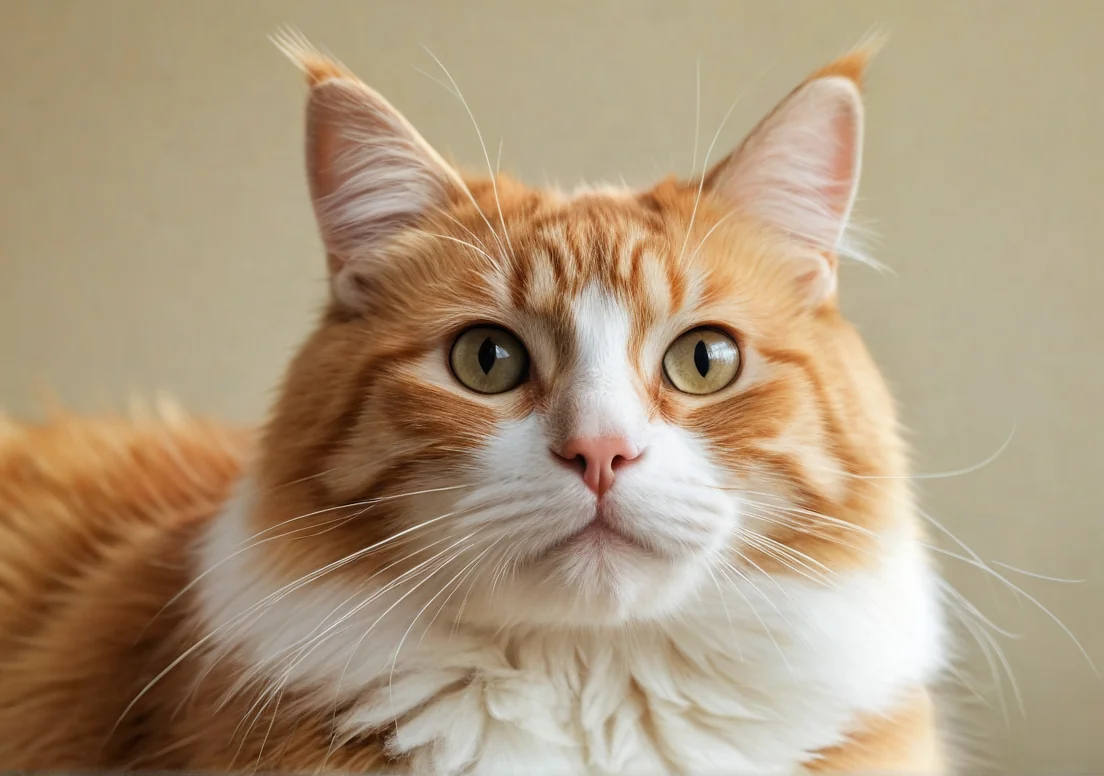Cats can be curious creatures, and their behavior often leaves us scratching our heads. One puzzling behavior that many cat owners notice is their feline friends isolating after being spayed.
Cats tend to isolate after being spayed primarily due to the stress of the surgery and the need for recovery. They may feel discomfort or anxiety during this vulnerable time, prompting them to seek solitude while they heal. There’s more to explore here about how this behavior connects to their instinctual needs and what you can do to support your cat during recovery, so keep reading to uncover some insightful tips and facts!

Why do cats feel the need to hide after surgery
Cats are instinctively wired for survival, and hiding is their way of coping with stress or discomfort. After a surgical procedure like spaying, your furry friend may feel vulnerable and unsure of their surroundings. In the wild, a cat would seek a safe, quiet spot to recuperate from injuries or illness, away from potential threats.
Post-surgery, they might experience pain, lethargy, or even the disorientation that comes from anesthesia. This can trigger a desire to find a secure hideaway where they feel protected. It’s all about instinct—your cat’s way of communicating that they may not be feeling their best and prefer to keep a low profile until they are back to their usual self.
Is it normal for cats to isolate after being spayed
Isolating after being spayed isn’t just normal—it’s a common recovery behavior. While some cats may want to cuddle or hang out with their humans after surgery, many prefer to retreat to a cozy spot. This behavior serves several purposes.
For one, it allows them to rest comfortably without the distractions of a bustling household. Additionally, it helps them gather their strength and recover from the stress of surgery.
Consider these typical behaviors you might see in your cat during their recovery:
- Seeking quiet spaces: Look for your cat tucked away in a favorite nook or under the bed.
- Reduced appetite: It isn’t unusual for cats to eat less right after surgery, contributing to their desire to stay secluded.
- Lethargy: They might seem more tired than usual, sleeping more as they heal.
- Changes in litter box habits: A cat might skip the litter box in favor of a cozy hiding spot if they’re not feeling well.
Being aware of these signs helps you understand their needs during this time. Encourage your feline friend to come out when they’re ready, but don’t force interaction. Offering gentle reassurance while giving them space is key. And always keep an eye on their recovery—if isolation lasts too long or you notice concerning behaviors, consulting with your vet is a smart move. Cats have a knack for hiding not just in physical spaces but in their emotions too; be patient as they navigate their journey back to full health.
How long does it typically last
Isolation behavior in cats after being spayed is often a normal response to the stress and recovery of surgery. Initially, you might notice your cat wanting to retreat to their favorite hiding spot right after returning home. This phase generally lasts around 24 to 48 hours, as your cat processes the anesthesia and recovers from the procedure.
In the following days, the duration of isolation can vary. Most cats gradually return to their normal social behavior within a week, but some may take up to two weeks to bounce back fully. It’s important to provide a calm environment, giving your cat the space they need without forcing interaction.
As a unique insight, consider using gentle encouragement—like soft talking or interactive toys—to coax them out gradually. Sometimes, a little interaction can reassure them they’re safe without overwhelming them.
What signs indicate a problem
While it’s normal for cats to want some alone time post-surgery, certain signs can indicate that all isn’t well. Keep an eye out for these warning signs that may suggest your cat is struggling with recovery:
- Excessive lethargy: If your cat is unresponsive beyond what you expect, it might be a red flag.
- Lack of appetite: Refusing to eat for more than a day or two isn’t typical after surgery.
- Behavioral changes: Sudden aggression or hiding for longer than usual can signal stress or pain.
- Swelling or discharge: Any swelling at the incision site or unusual discharge should be assessed by a vet.
- Vomiting or diarrhea: Upset stomach can be normal in some cases, but persistent issues should be checked out.
If you spot any of these concerning signs, it’s wise to consult your vet promptly. They can help determine if your cat needs additional care or if something else is going on. Be proactive—keeping a close eye on your furry friend is the best way to ensure a smooth recovery.
After being spayed, a cat might seek solitude more than usual, and that’s pretty typical. It’s part of their natural response to stress and recovery. While it’s tempting to draw them out with your affection or to engage them with other pets, it’s generally best to respect their space during this period.
Encouraging socialization can sometimes backfire. If your cat feels overwhelmed or pressured, it could increase their anxiety, which isn’t good for their healing process. However, gentle interaction—like soft talking or offering a favorite toy—can reassure them without forcing engagement. Be attentive to their body language. If they come to you, great! If not, give them the time they need.
What can you do to help your cat feel comfortable
Creating a cozy recovery haven for your cat can significantly aid in their healing and minimize their stress levels. Here are some practical tips to consider:
- Quiet Space: Set up a secluded spot with your cat’s bed or blankets. A small, enclosed area can help them feel safe.
- Controlled Environment: Keep other pets and loud noises away. This helps maintain a calm atmosphere conducive to healing.
- Familiar Scents: Surround them with familiar items, like favorite toys or blankets. Sentiments can ease their anxiety.
- Comfortable Temperature: Ensure this space is warm and inviting. Cats love a cozy nook.
- Limited Movement: Make sure their environment doesn’t tempt them to leap or jump around too much, as their incision needs time to heal.
Additionally, engage them with puzzle toys or soft music while they rest. This keeps their minds active without too much physical exertion, which is an excellent way to help alleviate boredom.
Consider placing a feline pheromone diffuser in the room. These diffusers can emit calming scents that help reduce anxiety during recovery. It’s a simple addition but can have a significant impact on fostering a peaceful environment.
How does spaying affect a cat’s behavior long term
Spaying a cat can introduce some changes in behavior that might surprise you. After being spayed, many cats experience a shift in energy levels and social interactions. One notable impact is a reduction in roaming behaviors. Female cats often seek mates, but after spaying, this drive diminishes, which can make them less interested in exploring outside their usual territory.
In the long run, spayed cats might also become more relaxed and affectionate. The hormonal influences contributing to specific behaviors, like aggression or anxiety, are reduced, leading to a calmer demeanor. You might find your cat curling up closer to you after the procedure, seeking comfort in your presence rather than getting into playful spats with other animals.
Isolation can be another aspect of post-spaying behavior, especially right after the surgery. Cats tend to seek safe spaces to recover. They might hide away in a cozy corner to feel secure as they process changes in their bodies. This behavior is often temporary, as they’ll gradually return to their usual social patterns.
Interesting facts about feline post-operative behavior
After a cat undergoes surgery, such as spaying, their behavior often reveals interesting traits about their nature. Here are some notable facts:
Hiding is common: Cats may retreat and find a spot to feel safe, reflecting their instinct to avoid predators during vulnerable moments.
Sleep patterns can change: Following surgery, cats might sleep more, not just from anesthesia but as a response to healing. Their bodies need rest to recover fully.
Increased clinginess: After a stressful experience, many cats will look for reassurance from their humans, often sticking close by. This behavior highlights their bond with you.
Reduced appetite: It’s not unusual for a kitty’s appetite to dip post-surgery. Their stomachs may be unsettled from the anesthesia, but this should pass in a few days.
Behavioral quirks can appear: Some cats exhibit temporary odd habits, like pacing or mild vocalization. These moments often signify stress related to recovery.
One unique angle about post-operative behavior is the possibility of newfound sensitivity. After spaying, some cats may react strongly to stimuli they previously ignored, such as noises or changes in their environment. This heightened awareness can show how vulnerable they feel while recovering. Keeping their environment calm and fostering a sense of security can help them navigate this change more smoothly.
Alex, a passionate animal lover, has experience in training and understanding animal behavior. As a proud pet parent to two dogs and three cats, he founded AnimalReport.net to share insights from animal experts and expand his knowledge of the animal kingdom.




